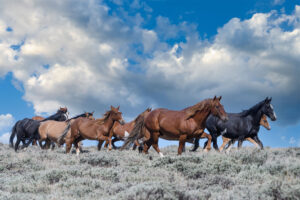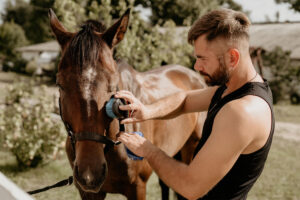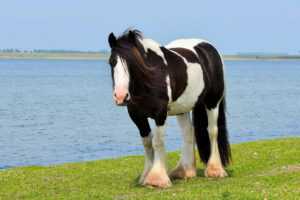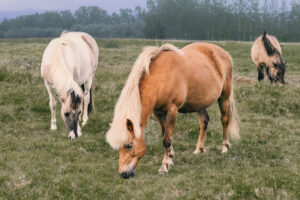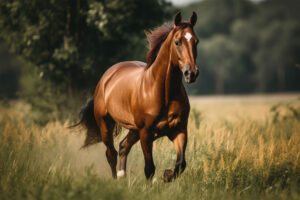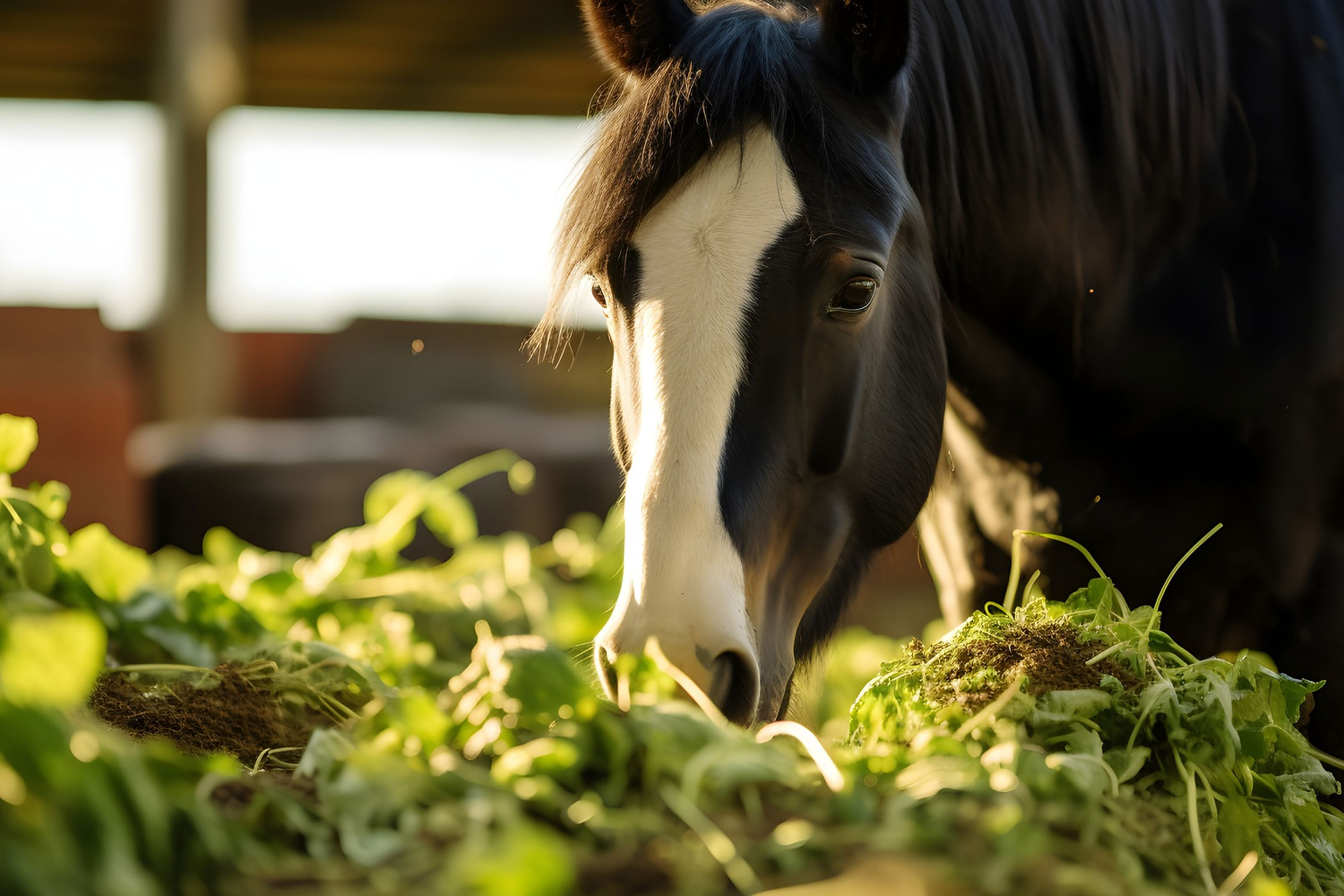
Nutrition and Care for a Horse in a Stall: Horses are outstanding creatures which have been domesticated by human beings for thousands of years. Their roles have evolved from working animals to liked partners, athletes, or even remedy animals. Regardless in their motive, right vitamins and care are critical to make sure their health, well-being, and sturdiness. This article specializes in the specific issues for dealing with the nutrients and care of a horse that resides in a stall.
Understanding the Stall Environment
Stall-kept horses spend an enormous portion in their lives in the confines of a constrained space. While stalls offer refuge and safety, it is vital to recognize the capability challenges related to these surroundings.
Stall Size and Design
The length of a horse’s stall is a important component of their typical consolation and nicely-being. Stalls have to be spacious sufficient to permit the pony to stand, lie down, and turn around effortlessly. A general stall length for a median horse is round 12×12 ft, but larger stalls of 14×14 or more offer even greater comfort.
In addition to size, stall design topics. Proper air flow is essential to make certain clean air movement, stopping the accumulation of dirt and ammonia from urine. Windows and vents can assist attain this. Stall floors should be safe, comfortable, and easy to smooth. Common alternatives encompass rubber mats or compacted gravel topped with bedding material.
Bedding
Bedding cloth in a horse’s stall serves more than one purposes. It offers cushioning for the horse’s joints and hooves, allows soak up urine, and prevents pores and skin irritation. Common bedding materials consist of straw, shavings, or wooden pellets. The preference of bedding relies upon on man or woman horse wishes and nearby availability.
Cleanliness
Maintaining a smooth stall is vital for a horse’s health. Stalls have to be cleaned day by day to remove manure and wet bedding, preventing the growth of dangerous microorganism. This practice also lets in for early detection of any health issues which includes colic, diarrhea, or lameness. Adequate drainage and a manure control plan are vital for stall cleanliness.
Nutrition for Stall-Kept Horses
Proper nutrients are the foundation of a horse’s fitness. Stall-saved horses have unique dietary necessities that vary from those residing in open pastures. It’s essential to tailor their diets to satisfy their precise wishes.
Forage
Forage is an essential component of a horse’s weight-reduction plan. It provides critical fiber, vitamins, and promotes dental fitness. Stall-kept horses may also have constrained get entry to pasture, so presenting fine hay is critical. The type and quantity of hay rely on factors together with the pony’s age, weight, and pastime stage.
Grass Hay: Common types encompass timothy, Bermuda, or orchard grass. These hays are lower in energy and appropriate for horses with confined exercising.
Legume Hay: Alfalfa and clover hay are higher in protein and electricity, making them appropriate for young, growing horses, pregnant mares, or people with higher strength necessities.
It’s essential to offer a constant supply of forage to imitate a horse’s natural grazing behavior. Slow-feed hay nets or mangers can help reduce waste and inspire slower intake.
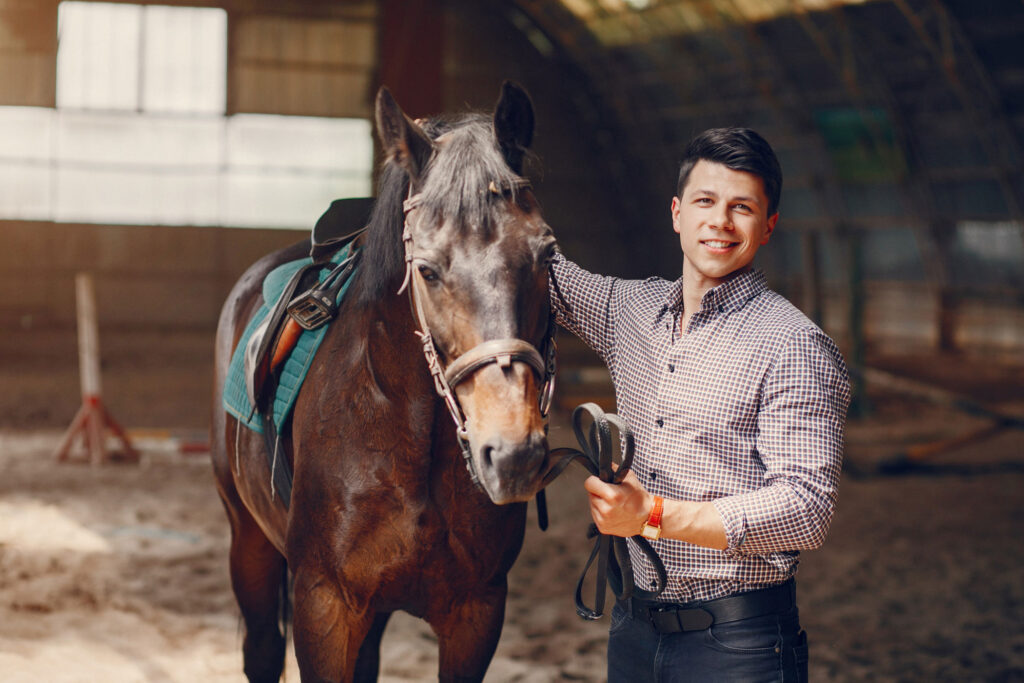
Concentrates
Concentrates, along with grains or pelleted feeds, ought to be brought to the weight loss plan as needed to meet a horse’s unique nutritional requirements. Factors like age, activity degree, and health conditions determine the kind and quantity of listen feed.
Balanced Feeds: Commercially formulated feeds are available to offer a balanced eating regimen. These typically include a combination of grains, nutrients, and minerals.
Senior Feeds: Older horses may advantage from senior feeds designed to fulfill their precise dietary needs, consisting of less complicated digestion.
Specialized Feeds: Some horses, along with people with metabolic disorders or hypersensitive reactions, may require specialized feeds. Consultation with a veterinarian or equine nutritionist is vital in such cases.
Water
Access to easy, clean water is paramount for any horse, whether or not in a stall or pasture. Horses can eat great quantities of water each day, and dehydration can lead to numerous health troubles. Automatic waterers or large buckets should be cleaned frequently to make sure horses have a steady deliver.
Feeding Schedule
Establishing a steady feeding agenda is useful for stall-stored horses. Horses thrive on recurring, so purpose to feed on the identical times each day. This now not simplest aids digestion but also enables display their appetite and health.
Physical Exercise and Mental Stimulation
Stall confinement can be mentally and physically taxing for horses. To make sure their well-being, it’s essential to provide opportunities for exercising and intellectual stimulation.
Turnout
Whenever possible, horses have to have access to outdoor turnout. This lets in them to graze, move freely, and socialize with other horses. If pasture turnout isn’t available, recall hand-walking, lunging, or the use of a horse walker to offer exercising.
Enrichment
Horses are clever and curious animals that gain from mental stimulation. Provide toys, along with deal with balls, placing items, or maybe mirrors, of their stalls to prevent boredom. Regular grooming and interaction with people can also provide mental stimulation.
Training
Engaging in normal schooling sessions may be both mentally and physically stimulating for horses. Training can help keep their health, improve obedience, and create a sturdy bond between the pony and handler.
Health Care
Maintaining the fitness of a stall-stored horse is a multifaceted task that entails ordinary veterinary care, dental care, and hoof care.
Veterinary Care
Regular veterinary takes a look at-united states are critical for tracking a horse’s standard health. Vaccinations, deworming, and dental assessments ought to be performed according to a veterinarian’s pointers. Early detection and treatment of fitness troubles are vital for a horse’s nicely-being.
Dental Care
Horses have continuously developing teeth which could broaden sharp factors or uneven put on. Routine dental assessments and, if important, floating (smoothing) of the enamel are crucial to prevent dental problems which can affect eating and universal health.
Hoof Care
Regular hoof care is important for a horse’s soundness and luxury. Hooves have to be trimmed and, if vital, shod through a qualified farrier. Proper hoof care allows prevent lameness and associated issues.
Parasite Control
Internal parasites can pose a enormous risk to a horse’s fitness. Deworming packages need to be applied primarily based on fecal egg counts and veterinarian suggestions to efficaciously control parasites.
Social Interaction
Horses are social animals that thrive on interaction with different horses. If viable, housing a couple of horses collectively in a barn or adjacent stalls can offer companionship and reduce stress and tedium.
Conclusion
Caring for a horse in a stall calls for careful attention to their unique wishes. Providing a easy, properly-ventilated stall with appropriate bedding is the inspiration of stall control. Proper nutrition tailor-made to the horse’s age, pastime degree, and health repute is vital for his or her general well-being. Regular exercising, intellectual stimulation, and attention to fitness care are vital components of stall-stored horse control. By know-how and addressing those elements, horse proprietors can make sure that their equine partners lead satisfied, healthy lives even within the confines of a stall.

